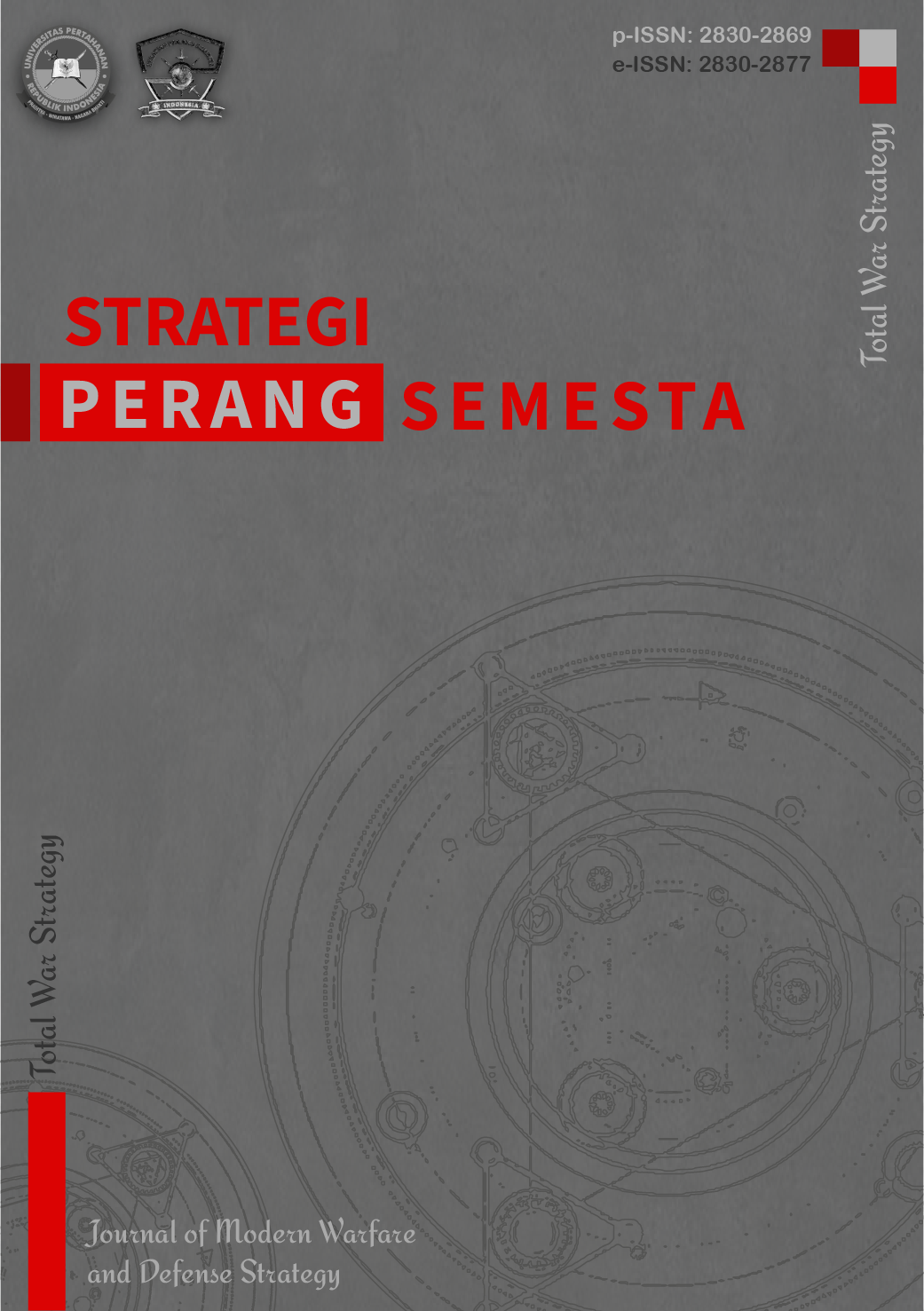Indonesian foreign policy and its response to South China Sea affairs for regional stability
DOI:
https://doi.org/10.56555/sps.v8i1.1190Abstract
This research explains the relationship between Indonesian foreign policy and taking the case studies of conflicts in the South China Sea. Today the dispute between the two major countries, such as America and China, is increasingly heating up in the South China Sea discourse, coupled with the increasing dynamics of the strategic environment that directly impact Indonesia's foreign policy and politics. The research method used in this research is a qualitative research method, supported by literature studies. In international politics, Indonesia has determined its position as a country that adheres to the principle of active free foreign policy, which in terms of foreign policy, Indonesia will not be influenced by the hands of other countries. This paper shows that Indonesia's defense policies and strategies in anticipation of the South China Sea conflict have not been properly announced. It was found that defense policy and strategy have not been in line with the foreign policy that pays special attention to the dynamics of the Southeast Asian region, including in the South China Sea. In addition, the latest defense policies and strategies have not paid attention to the dynamics of the South China Sea conflict. Indonesia's defense policy and strategy still consider that the conflation in the South China Sea can be resolved through soft power and does not anticipate the use of hard power that will have implications for Indonesia's national interests.
References
Susetyorini, P. (2017). PolitikLuar-Negeri-Indonesia. 131–137. https://doi.org/https://doi.org/10.3592/2
Kementerian Bappenas. (2015). MEWUJUDKAN POLITIK LUAR NEGERI BEBAS-AKTIF BERLANDASKAN KEPENTINGAN NASIONAL DAN JATI DIRI SEBAGAI NEGARA MARITIM (h. 81).
Sinaga, L. C. (2013). Hubungan Indonesia-Cina dalam dinamika politik, pertahanan-keamanan, dan ekonomi di Asia Tenggara (L. C. Sinaga (ed.)). LIPI Press. https://lipipress.lipi.go.id/detailpost/hubungan-indonesiacina-dalam-dinamika politik-pertahanankeamanan-dan-ekonomi-di-asia-tenggara.
Mirdanis, Midriem. Saputra, M. hendri. et al. (2013). Kajian Kebijakan Alutsista Pertahanan dan keamanan Republik Indonesia (agus hartanto (ed.)). LIPI Press.
Pratiwi, Y.D. (2017). Posisi Indonesia Dalam Konflik Laut Tiongkok Selatan. Jurnal Lembaga Kerisnet, 2(2) : 42-43.
Kementerian Pertahanan Republik Indonesia. (2015). Buku Putih Pertahanan Indonesia 2015. Kementerian Pertahanan Republik Indonesia.
Sugiyono, D. (2013). Metode Penelitian Kuantitatif, Kualitatif, dan Tindakan. ALFABETA, CV.
Rianto, P. (2016). Modul Metode Penelitian. In Metode penelitian (1st ed., Vol. 5, Issue July). Penerbit Komunikasi UII Program Studi Ilmu Komunikasi Universitas Islam Indonesia.
Ganewati Wuryandari. 2008. ”Landasan dan Prinsip Politik Luar Negeri Indonesia”, Pustaka Pelajar.
Buntoro, Kresno (2012). Alur Laut Kepulauan Indonesia (ALKI). Prospek dan Kendala. (Jakarta: Seskoal)
Orgaard, Liselotte. 2002. MaritiMe Security between China and Southeast Asia, Conflict and coorperation in the makiing of regional order. Ashgate Publising Limited.
Bakry, S. U. (1999). Pengantar Hubungan Internasional. jayabaya University Press.
Yusuf, Chandra Motik (et.all) 2010 75 Tahun Prof Dr. Hasjim Djalal, Ma: Negara Kepulauan Menuju Negara Maritim. Jakarta: Lembaga Laut Indonesia.
Soebagyo, O. (2013, Maret). “Pengaruh dan Keamanan Global Terhadp Indonesia. LembagaketahananNasionalRI”.(online).(http://www.lemhannas.go.id/portal/attachments/ 2170_Oerip%20Soebagyo%20II.opd.pdf).
Tempo. (2016). Ini Perjalanan Sengketa Kawasan Laut Cina Selatan. Duniatempo.com. https://dunia.tempo.co/read/787130/ini-perjalanan-sengketa-kawasan-laut-cina-selatan.
Ra’is, G. (2019). Masih Relevankah Politik Luar Negeri Bebas Dan Aktif. ProLegalNews. https://www.prolegalnews.id/Menu-Berita/Opini/Masih-Relevankah-Politik-Luar-Negeri-Bebas-Dan-Aktif.html
Undang-Undang Nomor 37 tahun 1999 tentang hubungan Luar negeri.
Peraturan Presiden No.8 Tahun 2021 tentang Kebijakan Umum Pertahanan Negara Tahun 2020-2024
United Nations Convention on the Law of the Sea (UNCLOS) 1982
Downloads
Published
Issue
Section
License
Proposed Policy for Journals That Offer Open Access. Authors who publish with this journal agree to the following terms:
- Authors retain copyright and grant the journal right of first publication with the work simultaneously licensed under a Creative Commons Attribution License that allows others to share the work with an acknowledgment of the work's authorship and initial publication in this journal.
- Authors are able to enter into separate, additional contractual arrangements for the non-exclusive distribution of the journal's published version of the work (e.g., post it to an institutional repository or publish it in a book), with an acknowledgment of its initial publication in this journal.
- Authors are permitted and encouraged to post their work online (e.g., in institutional repositories or on their website) prior to and during the submission process, as it can lead to productive exchanges, as well as earlier and greater citation of published work (See The Effect of Open Access).
Proposed Policy for Journals That Offer Delayed Open Access. Authors who publish with this journal agree to the following terms:
- Authors retain copyright and grant the journal right of first publication, with the work [SPECIFY PERIOD OF TIME] after publication simultaneously licensed under a Creative Commons Attribution License that allows others to share the work with an acknowledgment of the work's authorship and initial publication in this journal.
- Authors are able to enter into separate, additional contractual arrangements for the non-exclusive distribution of the journal's published version of the work (e.g., post it to an institutional repository or publish it in a book), with an acknowledgment of its initial publication in this journal.

